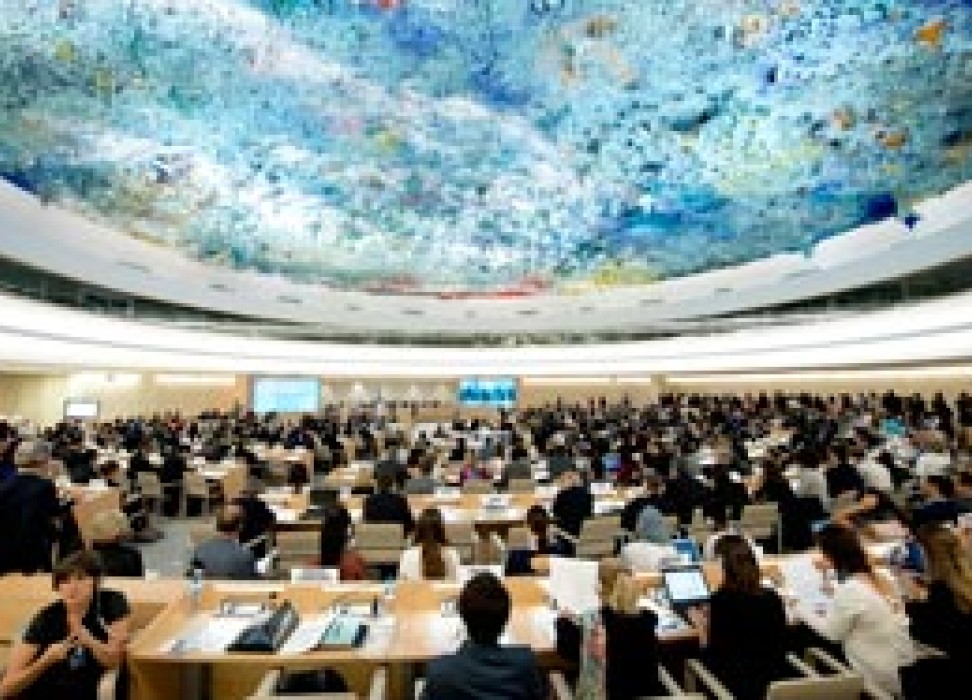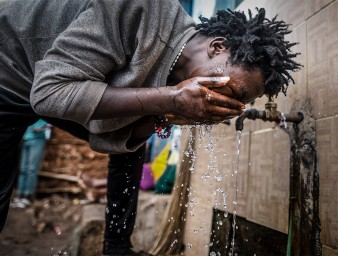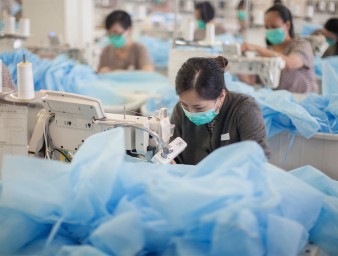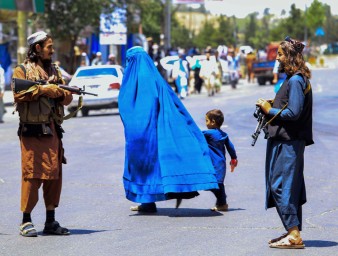Human Rights Council’s 24th session opens in Geneva
10 September 2013

“The International Community is late, very late, to take serious joint action to halt the downward spiral that has gripped Syria, slaughtering its people and destroying its cities,” said UN Human Rights Chief Navi Pillay, during the opening of the 24th session of the United Nations Human Rights Council in Geneva.
Since Pillay addressed the Council on the dire situation in Syria two years ago, the death toll has risen from 2,600 to an alarming 100,000, along with four million displaced. As of last week, there are two million Syrian refugees. There is also little doubt about the use of chemical weapons, although circumstances remain to be clarified, she said.
“Camps in neighbouring lands are struggling to cope and we are just a few months away from winter,” she said. “The suffering of Syria’s civilian population has reached unimaginable levels.” While there is a need for immediate international action by the United Nations and States, explained Pillay, a military response may result in more deaths and struggle. “There are no easy exits, no obvious pathway out of this nightmare, except the immediate negotiations of concrete steps to end the conflict,” Pillay said.
“While the world gazes in horror upon Syria, we must not forget the sometimes faltering efforts of other peoples, both in the Middle East and elsewhere, to assert their right to live in dignity, peace and security and full recognition of all their rights,” Pillay said.
In Pillay’s opening address to the Council, she also expressed concern over the “new wave of violence” in Iraq with more than 1,800 deaths recorded in the past two months. She said that the lack of accountability and impunity for the offenders creates challenges to human rights and rule of law institutions. Pillay also called upon the Iraqi authorities to investigate the recent murder of 52 people in Camp Ashraf.
She was also concerned about the continuing violence in Egypt and pushed for an independent investigation into all of these killings, and stands ready to assist Egypt to guarantee the rights of all Egyptians and strengthen the rule of law. The recent events in Turkey and the “clampdown” on human rights defenders in Bahrain underscores the vital importance of protecting the right to peaceful protest, including freedom of expression and peaceful assembly and association.
Pillay also stressed additional countries that require immediate attention of the Human Rights Council including Israel’s policy on forced evictions, the concern for the protection of human rights defenders and journalists in Sri Lanka and the human rights violations in Colombia, Slovakia and South Sudan. She also encouraged the government of Myanmar to create a timeframe for establishing a UN Human Rights Office.
Additional issues concerning Pillay were the forced evictions of Roma in France and the breakdown of law and order in the Central African Republic. She also condemned the assassination of politician Mohamed Brahmi in Tunisia and said the Government should take action to enforce the rule of law. Pillay also mentioned the progress made in Mali with its reduction in charges of violations of human rights.
She highlighted the Deputy High Commissioner Flavia Pansieri’s visit to the Democratic Republic of the Congo where she witnessed the fighting around the city of Goma and condemned the bombing of civilians as a violation of international humanitarian law.
Pillay was also concerned about the impact on the individual’s right to privacy in the United States and the United Kingdom. “While national security concerns may justify the exceptional and narrowly-tailored use of surveillance, I would urge all States to ensure that adequate safeguards are in place against security agency overreach and to protect the right to privacy and other human rights,” she said.
The global economic crisis continues to plague millions who are struggling without a job, sufficient food, proper health care, and adequate housing. “The impact of the crisis on human rights—were not inevitable, but the result of conscious policy choices—including the trend toward so-called austerity policies which adversely affect the economic and social rights of the most vulnerable communities, including the poor, women, youth, older persons, and persons with disabilities,” Pillay said.
She reminded the Council of the achievements made by the UN Human Rights Office, including the Optional Protocol to the International Covenant on Economic, Social and cultural Rights that was implemented in May 2013. While discrimination and xenophobia continues to impact refugees and migrants in many countries, most recently in Greece and Australia, the Office has pushed for including the human rights of migrants within the post-2015 development agenda.
Additional contributions include the partnership with UN Water to increase rights-based cooperation in the area of water and sanitation, as well as the Office’s active membership of the High level Task Force on the Global Food Security Crisis. She also highlighted the Office’s launch of Free &Equal, the first global public education campaign for promoting awareness of LGBT rights.
Pillay concluded by noting that it is not only important to act immediately on the current challenges, but it should be a priority to prevent future crises. The review of States by the UN human rights treaty bodies, as Pillay explained, is vital for early insight into these developing issues. “To effectively fulfil this crucial function of the treaty body system requires not only the full engagement of Member States, but also adequate resources and the ability to adopt efficient procedures,” she said.
The Human Rights Council is holding its 24th session from 9 to 27 September 2013 at the Palais des Nations in Geneva. A wide range of human rights issues will be addressed, including presentations from 19 independent human rights experts and bodies, the latest report on the Commission of Inquiry on Syria and an update from the Commission of Inquiry on the Democratic People’s Republic of Korea.
10 September 2013




